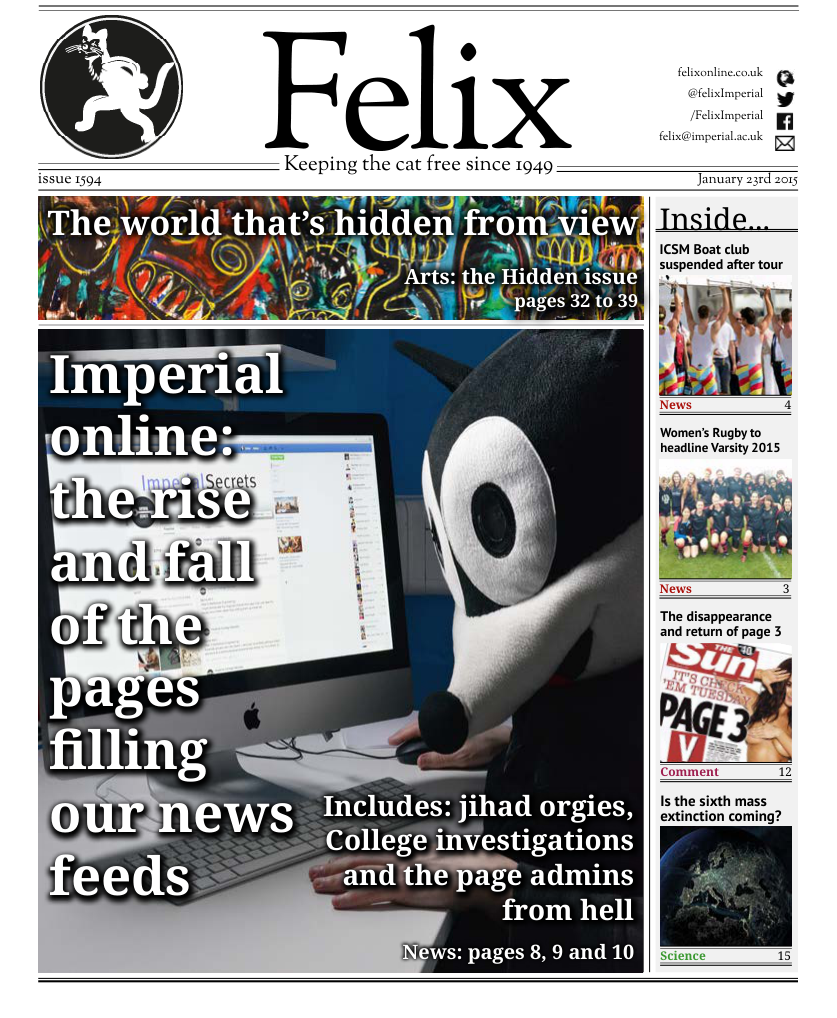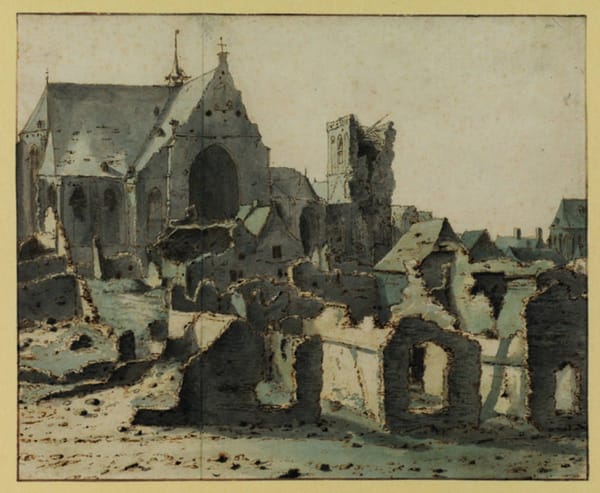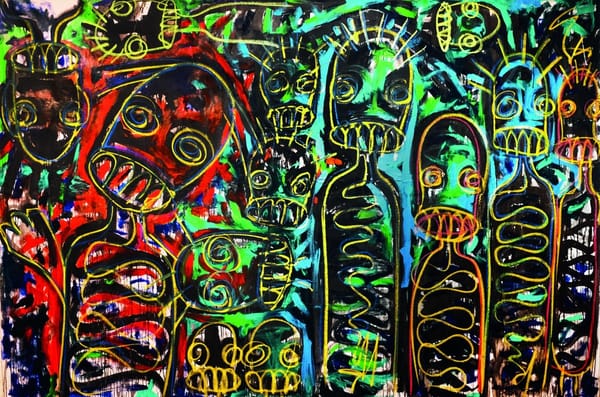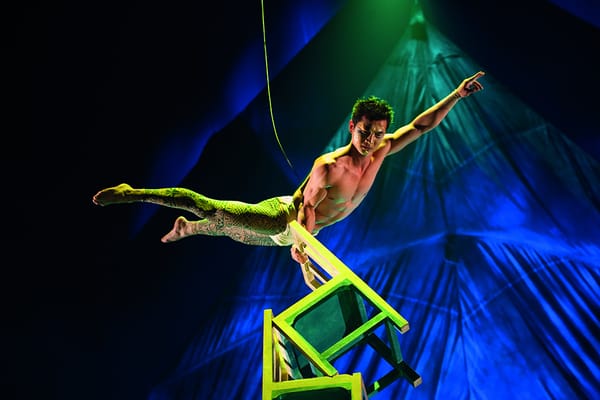Revealing the Costs of War
Kamil McClelland on the Royal Court’s new play
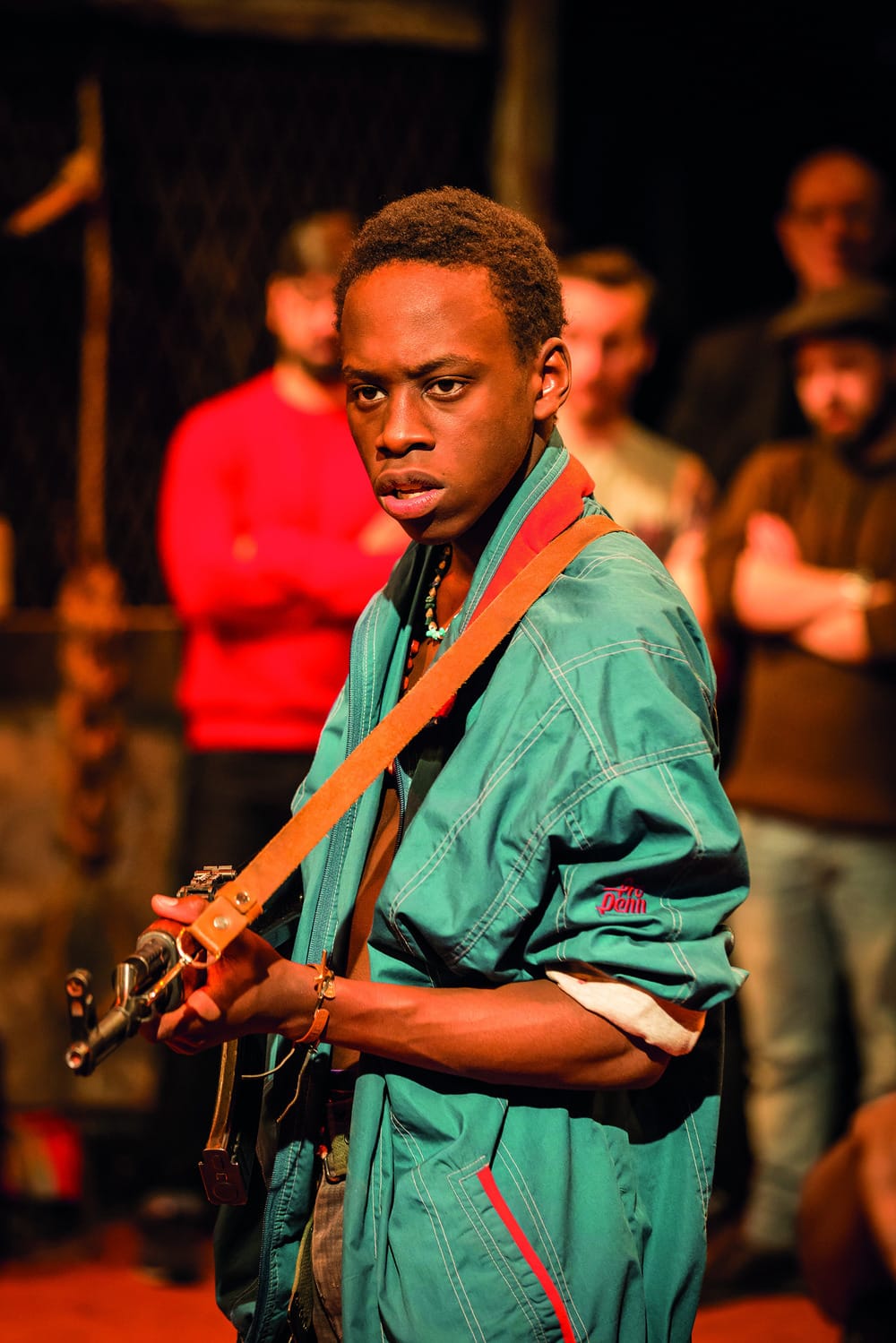
The debut work of 31-year-old playwright Diana Nneka Atuona, _Liberian Girl _has already made an impact, performing at the Global Summit to End Sexual Violence in Conflict last year and winning Atuona the Alfred Fagon Award for Best New Play of the Year in 2013. So what is all the commotion about?
The play tells the story of Martha (Juma Sharkah), a fresh-faced fourteen-year-old girl on the cusp of womanhood, who lives in a village with her grandmother, Mamie Esther (Cecilia Noble). When rebels attack, the two head for Monrovia to find refuge with a relative, Martha disguised as a boy so as to not distract the gaze of the coked-up soldiers. But when they are separated at a checkpoint, Martha finds herself propelled into the surreal world of the ‘Small Boys Unit’, stuck in her false identity as a man. From then on, you watch as Martha, now named Frisky, loses her childhood and becomes numb to what she experiences, a sad reflection of the other children in the unit, now hardened, who must have gone through the same traumatizing process. Whilst at the start you felt fear towards these soldiers, confronting you and shouting you, just under the skin lies a child, terrified of the situation they find themselves in.
The story is more one of the way that warfare distorts peoples' childhoods
This insight into the Liberian Civil War and the perverse press-ganging of child soldiers certainly did leave an impact on me. Set designer Anna Fleischle wanted to create a space that “physically infringes on you, as if you are somehow complicit” and, as you are herded around the space, at one point split into males and females, you cannot help but feel privy to what was happening, totally immersed in this horrifying world. Shockingly immediate, you are verbally confronted by the child soldiers but are powerless to intervene in the rape and murder on the red earth in front of you.
From 1989 to 1996, a civil war that pitted Charles Taylor against rival Prince Johnson ravaged Liberia, leaving 200,000 dead and millions displaced. But what particularly stood out about this conflict was the recruitment of children into ‘Small Boys Units’, separated from their families and forced to fight in a world of rape, death and destruction. Although Atuona doesn’t particularly dwell on the circumstance of the war, we are given insight into its terror through the story of these children, robbed of their childhood but yearning for a father figure in their leader Taylor, whom they call ‘Papay’. But because of this, the story becomes less about the particular historical context but more one of the way warfare distorts of childhood, one that could be applied to any conflict around the world.
You feel affronted by the intimacy and violence, yet can still empathise
This play represents Sharkah’s professional stage debut, impressive seeing the quality of her acting and that of the rest of the cast, especially the younger members, such as Weruche Opia (Finda) and Michael Ajao (Double Trouble). Her stony façade as Frisky as she slowly becomes incorporated into the unit does not stop her true inner self, delicate and caring, to shine through, especially in her relationship abused and imprisoned Finda. I only wish there was more in-depth analysis of the psyche of children in warfare, more quiet moments between the gun-wielding bravado to explore the background of these children, their mentality and how they yearn for normalcy.
But the work did get most other things right, helping you understand that the world of drugs, violence and misogyny was not the fault of these ignorant, lost children, but the work of the adults who manipulated them into committing atrocities through the promise of a father figure and some kind of stability.
It really was an excellent play. You felt affronted by the intimacy and violence yet you could empathise with the perpetrators, knowing, through the story of Martha, that it is not their fault but out of necessity that they act this way. And whilst the production might not be everyone’s cup of tea, I think it does an excellent job in demystifying this world that superficially seems utterly unbelievable to outsiders.
Liberian Girl is on until the 31st January, at the Royal Court. Tickets are available online, £20 each; concessions available. Age guidance 16+.

